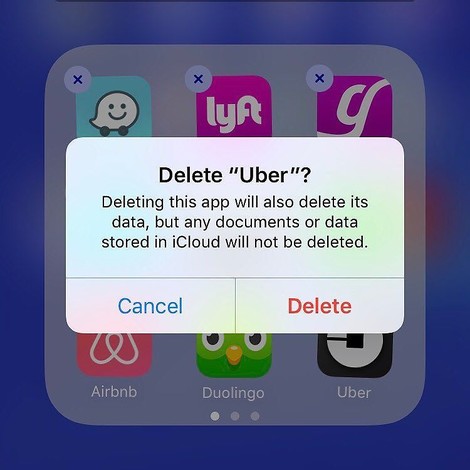Your podcast discovery platform
Curious minds select the most fascinating podcasts from around the world. Discover hand-piqd audio recommendations on your favorite topics.

piqer for: Global finds Technology and society Globalization and politics
Elvia Wilk is a writer and editor living in New York and Berlin, covering art, architecture, urbanism, and technology. She contributes to publications like Frieze, Artforum, e-flux, die Zeit, the Architectural Review, and Metropolis. She's currently a contributing editor at e-flux Journal and Rhizome.
Feel Empowered By Deleting Uber? Think Again.
When protests against President Trump’s executive order halting immigration erupted at JFK International Airport in January, the New York Taxi Workers Alliance temporarily went on strike in a show of support.
For its part, ride-share service Uber (notorious for undercutting taxi unions the world over) responded by pausing its surge pricing scheme. The stunt, meant to demonstrate that the company wouldn’t take advantage of extraordinary situations for financial gain, backfired – it was instead seen as Uber's endorsement of the ban by “crossing the picket line," as Jacob Silverman writes in this article. Small surprise, given CEO Travis Kalanick's cozy position on Trump's advisory council.
“Civil liberties are trending, according to a slide deck probably being prepared somewhere in Cupertino,” quips Silverman, but consumers seem to finally be getting woke to the hypocrisy of tech humanitarianism. This is evidenced by the #deleteuber campaign that exploded after the JFK protests, which led thousands to delete their accounts – and eventually prompted Kalanick to step down from Trump's advisory council.
But app deletion, argues Silverman, is an illusion of political activism that comes too late. Uber and the many other giants of the 'sharing economy,' like Airbnb, have already been eroding civil liberties and labour rights for years – why did it take so long for a mass boycott to arise? More to the point, are there ways to resist beyond canned app activism?
Once the Twitter shit-storm passes, Silicon Valley will return to business as usual: profit-driven exploitation “cloaked in a vague humanitarianism,” in Silverman's words. Boycotts are important, but political engagement needs to expand beyond the limited range of consumer decisions we're given: to delete an app is not to be an empowered citizen.
“Every day we are complicit in exploitative economic transactions. Silicon Valley’s achievement has been to re-cast these transactions as liberating acts of self-expression.”
